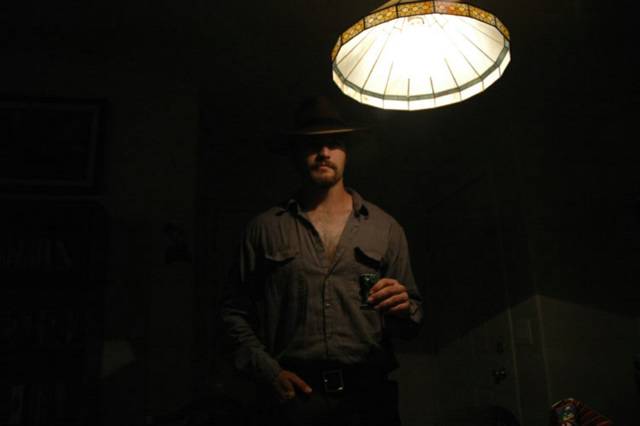Unembedded
I just came from a fascinating slide show from a few independant journalists who had been convering the war in Iraq from before the US invasion until quite recently. This was a remarkable presentation not only for the incredible quality of the photo's and the stories they told, but primarily for the depth it gave to life in Iraq. Contrary to what many would have us believe, reality is neither pro-war or anit-war. Life, the real facts and realitues, the things that actually happen and cause other things to happen are not black and white. The world we live in is not black and white. This slideshow and presentation captured wonderfully the simple realities of life on the ground, both for better and worse. No partisanship, no snide political remarks, no admonishments or name calling or foot stomping or rhetoric. Only the stories and photos that come from living there for years and watching history unfold. This event is among the first in a tour promoting the gallery display of their photo's and presentation, they will soon be in Virginia, Toronto, and I'm not sure where else yet, but seek them out at www.unembedded.net and book them at a venue near you soon.
Those that have known me for awhile may know I long held journalists in low regard, for the way I thought they mis-represented the world and reality. On the one hand, my notion that the world is not even remotly close to the way it is presented on the evening news, in the daily paper, or in the magazines has only been confirmed by my lifes experiance, both at home, then in Cuba, Sri Lanka, and most recently Haiti. But where I once held jounalists responsable for the mis-information, I had latley begun to suspect it is in fact the editors and publishers who are to blame. I began on this train of thought in Haiti, where all the journo's I met were consious, decent people with an affinity for the truth and who truly wanted to paint an accurate picture of events on the ground for the world at large. I was there, in the slums, at the polls, in the jails, in the courts, at the NGO meetings and I often saw jouralists. But the news being reported back home was not the same news that happened on the ground in front of me. How could this be, I asked myself? The answer is in an office in New York, an editor or publisher who takes a story, cuts it in half, takes out all the big words, and re-writes the caption to the photo. This suspicion was confirmed for me by the folks who spoke tonight.
I spoke with them at length after the presentation, and we disscussed this phenomenon. Thanks to the power of the internet and self publication, more information is available. This means more of the truth, but it also means more of the garbage. How to sort the wheat from the chaff is still and ongoing issue in these heady times, but I am convinced the truth, while rarely to be found in the daily newspaper, is out there, and sometimes is actually closer than going to the dusty streets and bombed out neighborhoods where realtiy is a fact of life.
Those that have known me for awhile may know I long held journalists in low regard, for the way I thought they mis-represented the world and reality. On the one hand, my notion that the world is not even remotly close to the way it is presented on the evening news, in the daily paper, or in the magazines has only been confirmed by my lifes experiance, both at home, then in Cuba, Sri Lanka, and most recently Haiti. But where I once held jounalists responsable for the mis-information, I had latley begun to suspect it is in fact the editors and publishers who are to blame. I began on this train of thought in Haiti, where all the journo's I met were consious, decent people with an affinity for the truth and who truly wanted to paint an accurate picture of events on the ground for the world at large. I was there, in the slums, at the polls, in the jails, in the courts, at the NGO meetings and I often saw jouralists. But the news being reported back home was not the same news that happened on the ground in front of me. How could this be, I asked myself? The answer is in an office in New York, an editor or publisher who takes a story, cuts it in half, takes out all the big words, and re-writes the caption to the photo. This suspicion was confirmed for me by the folks who spoke tonight.
I spoke with them at length after the presentation, and we disscussed this phenomenon. Thanks to the power of the internet and self publication, more information is available. This means more of the truth, but it also means more of the garbage. How to sort the wheat from the chaff is still and ongoing issue in these heady times, but I am convinced the truth, while rarely to be found in the daily newspaper, is out there, and sometimes is actually closer than going to the dusty streets and bombed out neighborhoods where realtiy is a fact of life.

